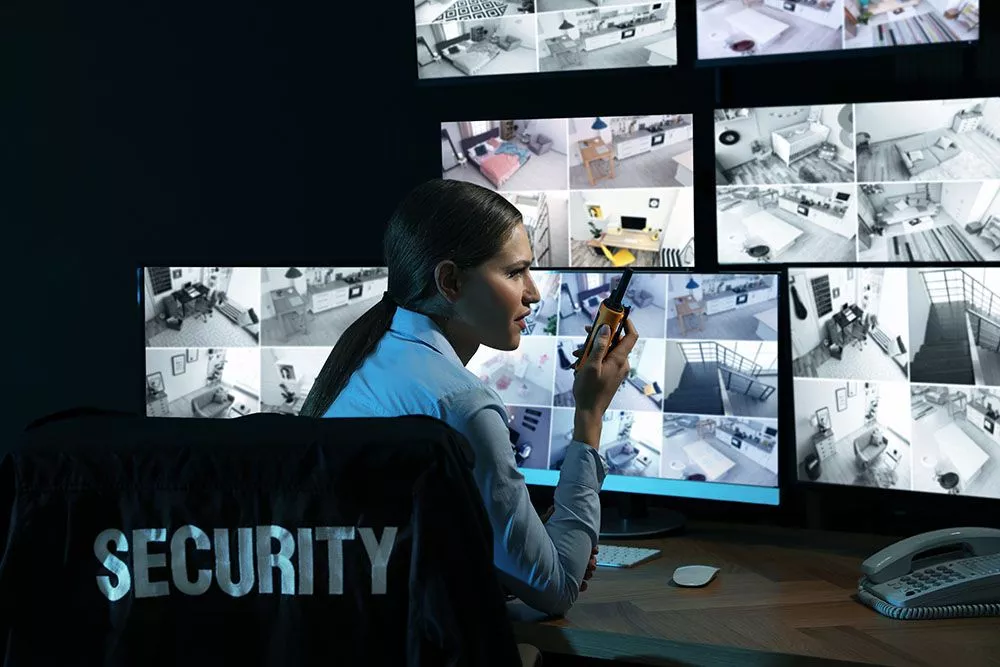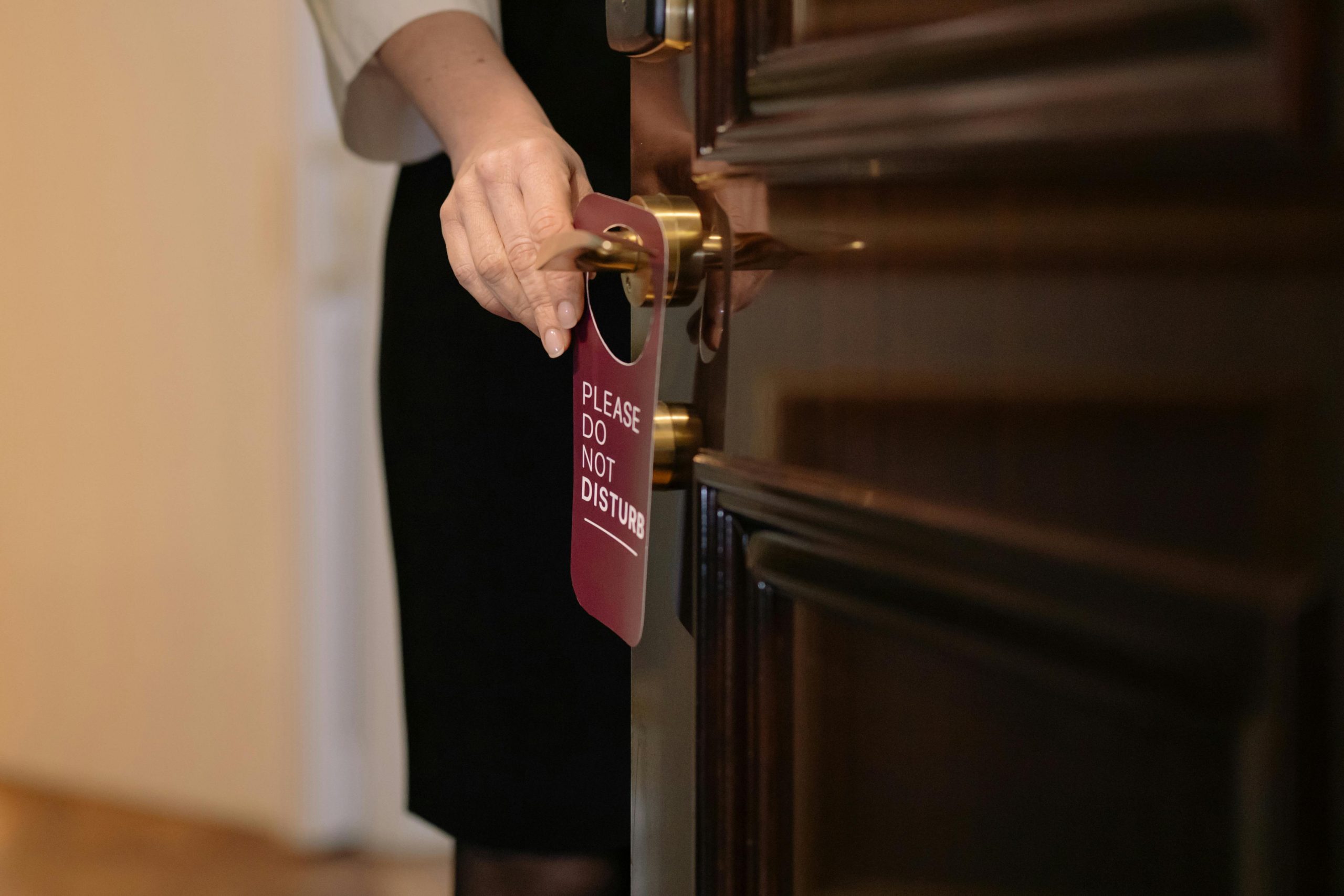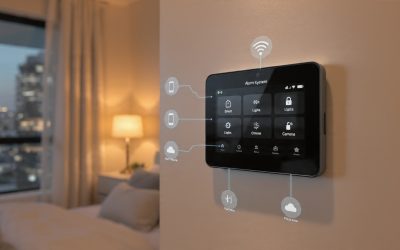In an era where safety and security are paramount, hotels are increasingly turning to advanced access control systems as part of their business security systems to ensure the well-being of their guests. These systems not only enhance security but also streamline operations, providing a seamless experience for both guests and staff. This article delves into the various ways hotel access control systems contribute to guest safety and overall security within the hospitality industry.
The Importance of Security in the Hospitality Industry
Hotels are unique environments that cater to a diverse range of guests, each with their own expectations regarding safety and privacy. The hospitality industry must balance the need for open access with stringent commercial security measures. This duality can be challenging, but it is essential for maintaining a positive reputation and ensuring guest satisfaction.
Guest Expectations
Today’s travellers expect a high level of security during their stay. From the moment they check in, guests anticipate that their personal belongings and privacy will be protected. This expectation is not unfounded; incidents of theft and unauthorised access can severely damage a hotel’s reputation and lead to significant financial losses.
Moreover, in an age where information is readily shared online, a single security breach can result in negative reviews that may deter potential guests. Therefore, investing in robust access control systems and comprehensive business security solutions is not merely a precaution; it is a necessity for maintaining a competitive edge in the hospitality market.
Regulatory Compliance
Hotels must also navigate a complex landscape of regulations and standards related to safety and security. Compliance with these regulations is crucial not only for legal reasons but also for building trust with guests through effective physical security measures. Access control systems can help hotels meet these requirements by providing detailed records of who enters and exits the premises.
By implementing a comprehensive access control strategy, hotels can ensure they are adhering to local laws and industry standards, thereby protecting themselves from potential legal ramifications.
What is Access Control in Business Security?
Access control is a cornerstone of business security, designed to regulate who can enter or access specific areas within a facility. This security solution ensures that only authorized personnel can access sensitive areas, thereby mitigating risks such as theft, vandalism, and unauthorized entry. Access control systems can be deployed to secure various entry points, including doors, gates, and elevators, and can be seamlessly integrated with other security systems like CCTV cameras and alarm systems. By implementing robust access control systems, businesses can enhance their overall security posture, protect valuable assets, and ensure a safe environment for employees and guests alike.
Components of Hotel Access Control Systems
Access control systems in hotels typically comprise several key components that work together to create a secure security system. Understanding these components is essential for appreciating how they contribute to guest safety.
Electronic Key Cards
One of the most recognisable features of modern hotel security is the electronic key card. These cards replace traditional metal keys and provide a more secure method of granting access to guest rooms and common areas. Each key card is programmed with specific access rights, allowing guests to enter their rooms while restricting access to others.
Additionally, these key cards can be integrated with the hotel’s security alarm system to provide an added layer of protection. Electronic key cards can be easily deactivated if lost or stolen, significantly reducing the risk of unauthorised access. This feature not only enhances security but also provides peace of mind for guests, knowing that their room is protected.
Access Control Software
The backbone of any access control system is its software. This software manages the entire system, allowing hotel staff to monitor access points, generate reports, and manage key card programming. With real-time data, hotel management can quickly respond to any security concerns or anomalies.
Moreover, many modern systems offer remote access capabilities, enabling managers to oversee security from anywhere. This flexibility is particularly beneficial for larger hotels with multiple locations, where on-site management may not always be feasible. Additionally, these systems are often complemented by professional monitoring services for added peace of mind.
Surveillance Integration
Access control systems can be further enhanced through integration with video surveillance cameras. By linking these two systems, hotels can create a comprehensive security network that monitors not only who enters the building but also how they move within it.
Surveillance footage from integrated video surveillance systems can provide valuable insights during security incidents, allowing hotel staff to respond swiftly and effectively. This integration not only deters potential wrongdoers but also reassures guests that their safety is a top priority.
Types of Access Control Systems for Hotels
Hotels have a variety of access control systems to choose from, each offering unique features to enhance security and convenience:
- Card-Based Access Control Systems: These systems use electronic cards or key fobs to grant access. Each card is programmed with specific access rights, making it easy to manage and update permissions.
- Biometric Access Control Systems: Utilizing fingerprint, facial recognition, or iris scanning technology, these systems offer a high level of security by ensuring that only individuals with registered biometric data can gain access.
- Keypad Access Control Systems: These systems require users to enter a code on a keypad to gain access. They are simple to use and can be easily reprogrammed if security codes need to be changed.
- Smart Lock Access Control Systems: These advanced systems use smart locks that can be controlled remotely via a smartphone app. They offer the convenience of managing access from anywhere, enhancing both security and user experience.
By selecting the right type of access control system, hotels can tailor their security measures to meet specific needs and provide a safe environment for their guests.
How Access Control Systems Work
Access control systems operate through a combination of hardware and software components designed to manage and regulate entry to specific areas. The core components include:
- Control Panel: The central hub of the system, responsible for programming and managing access permissions.
- Readers: Devices that read access credentials, such as cards or biometric data, presented by users.
- Locks: Mechanisms that secure doors or gates, which are activated or deactivated based on the access permissions granted by the control panel.
When an authorized individual presents their access credential to a reader, the system cross-references the data with stored information. If the data matches, the control panel sends a signal to unlock the door or gate, granting access. This seamless process ensures that only authorized personnel can enter restricted areas, enhancing overall security.
Benefits of Implementing Access Control Systems
The advantages of implementing access control systems in hotels extend beyond mere security. These systems offer a range of benefits that can enhance the overall guest experience and improve operational efficiency.
In addition to access control, implementing business alarm systems can further enhance the security and peace of mind for both guests and staff.
Enhanced Guest Experience
Guests appreciate the convenience that electronic key cards provide. No longer do they have to worry about carrying a heavy set of keys or the risk of losing them. Instead, they can enjoy a seamless check-in process, often using mobile apps to access their rooms without the need for physical cards.
This level of convenience contributes to a positive guest experience, encouraging repeat visits and positive reviews. In the competitive hospitality market, such factors can significantly impact a hotel’s success. The introduction of a new alarm system can also contribute to a sense of security, further enhancing the guest experience.
Operational Efficiency
Access control systems streamline hotel operations by reducing the workload on staff. With automated key card programming and management, front desk personnel can focus on providing excellent customer service rather than dealing with security issues.
Furthermore, the data collected through access control systems can be analysed to identify trends and improve operational strategies. For instance, understanding peak check-in times through security camera footage can help hotels allocate staff more effectively, enhancing service delivery.
Implementing an Access Control System
Implementing an access control system in a hotel requires careful planning and execution. Here are the key steps involved:
- Identify Secure Areas: Determine which areas of the hotel need to be secured, such as guest rooms, staff-only zones, and sensitive storage areas.
- Choose the Right System: Select the type of access control system that best meets the hotel’s security needs and budget.
- Install Hardware and Software: Set up the control panel, readers, and locks at designated entry points. Ensure professional installation for optimal performance.
- Program the System: Configure the system to grant access to authorized personnel, setting up user profiles and access levels.
- Test the System: Conduct thorough testing to ensure the system functions correctly and addresses all security requirements.
By following these steps, hotels can implement an effective access control system that enhances security and operational efficiency.

Maintaining and Upgrading Your Access Control System
Regular maintenance and upgrades are crucial to ensure that an access control system remains effective and reliable. Key maintenance tasks include:
- Software and Firmware Updates: Regularly update the system’s software and firmware to benefit from the latest security features and improvements.
- Hardware Checks: Inspect and replace any faulty or damaged components to maintain system integrity.
- User Management: Continuously update user profiles, adding new users and removing those who no longer require access.
- System Upgrades: Invest in new technologies and features to enhance the system’s capabilities and stay ahead of emerging security threats.
- Security Audits: Perform regular audits to identify and address vulnerabilities, ensuring the system remains robust and secure.
By prioritizing maintenance and upgrades, hotels can ensure their access control systems continue to provide top-quality security solutions, protecting guests and assets effectively.
Future Trends in Hotel Access Control Systems
The landscape of hotel security is continually evolving, driven by technological advancements and changing guest expectations. As hotels strive to stay ahead of the curve, several trends are emerging in access control systems. Investing in top quality security systems will be essential for maintaining guest trust and satisfaction.
Mobile Access Solutions
Mobile access solutions are gaining traction, allowing guests to use their smartphones as digital keys. This innovation not only enhances convenience but also aligns with the growing trend of contactless services. As guests become increasingly accustomed to using their smartphones for various tasks, mobile access is likely to become a standard feature in hotels.
Similar to the growing trend in home security systems, mobile access solutions are becoming increasingly popular in the hospitality industry.
Biometric Authentication
Biometric authentication, such as fingerprint or facial recognition technology, is another trend that promises to revolutionise hotel access control. By using unique biological traits for identification, hotels can offer an unparalleled level of security. While still in the early stages of adoption, biometric systems may soon become more prevalent as technology advances and costs decrease. By integrating biometric authentication into their business security system, hotels can offer an unparalleled level of security.
In conclusion, hotel access control systems play a crucial role in safeguarding guests and enhancing the overall security of hospitality establishments. By implementing a strong commercial security system with advanced technologies such as electronic key cards, integrated surveillance, and security alarms, hotels can provide a secure and seamless experience for their guests.
As the hospitality industry continues to evolve, staying abreast of the latest trends in access control will be essential for maintaining guest trust and satisfaction. Investing in robust security measures is not just about protecting assets; it is about creating an environment where guests feel safe, valued, and eager to return.










